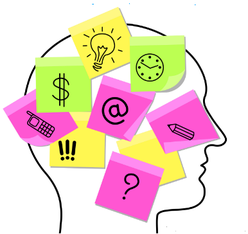 ABOUT THIS POST This post is aimed at the key supporters of a person who has been experiencing some difficulties with thinking and memory. Most carers or supporters are typically a spouse, partner, parent or adult child, though you may also be a close friend. It covers:
Adjusting to the changes in your relative or friend As a close relative, it is likely that you were among the first to notice thinking and memory difficulties in your relative or friend. You may have been worried for some time (sometimes several years) before discussing your concern with another relative and/ or other health professionals. When a doctor confirms your suspicions that your relative is experiencing some 'real' memory and thinking difficulties, you may feel one or a combination of the following:
Common day-to-day challenges The nature of the concerns you experience will depend on the nature of your relative's memory and thinking difficulties. Some common stressors include:
Any pre-existing problems may make it even harder to cope with the new situation. These can include:
When you should seek help It is important that professionals and community services are available to assist you to cope with the challenges of supporting your relative. You should seek help if you:
Several different types of professional may be able to help you. A useful first point of call is often your family doctor (GP) who can refer you to a range of services that can be of use. These could include:
EDUCATE other family members about the difficulties your relative is experiencing. Try to keep communication open and avoid conflict. Ask them for support and assistance/ SHARE your concerns with friends in your local community clubs or church group. Try to be sensitive to your relative's feelings on this issue. If there are some people who your relative would be reluctant to tell about his/ her problems try to respect his/ her wishes. If necessary, seek out people who are not related to or involved with your relative. TIPS FOR MANAGING 'CARER' STRESS Try to stay focused on a positive problem solving approach BUT don't set unrealistic expectations
Learn to take time out and use relaxation techniques
Take care of yourself
0 Comments
Leave a Reply. |
AuthorDr Bridget Regan ArchivesCategories |

 RSS Feed
RSS Feed